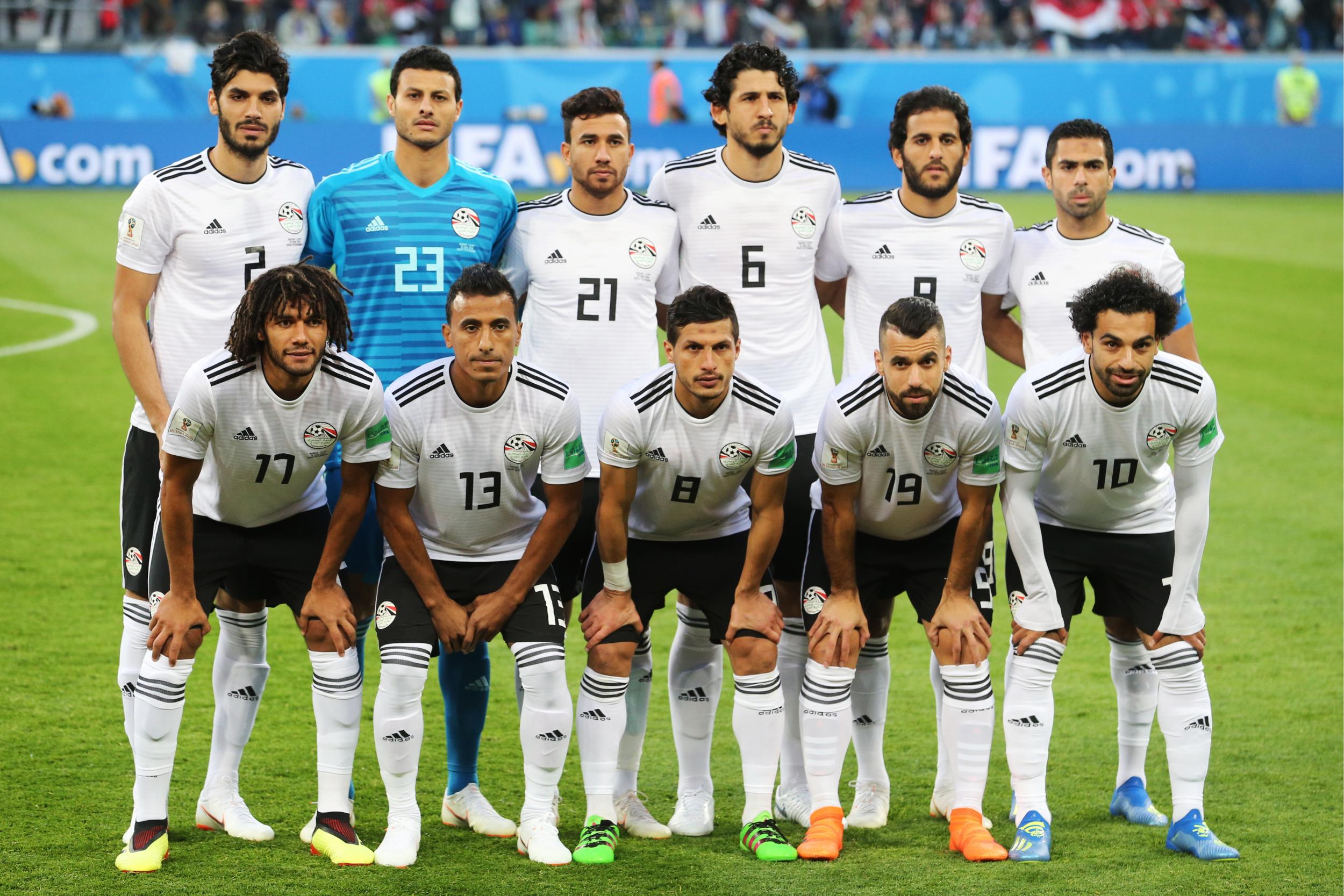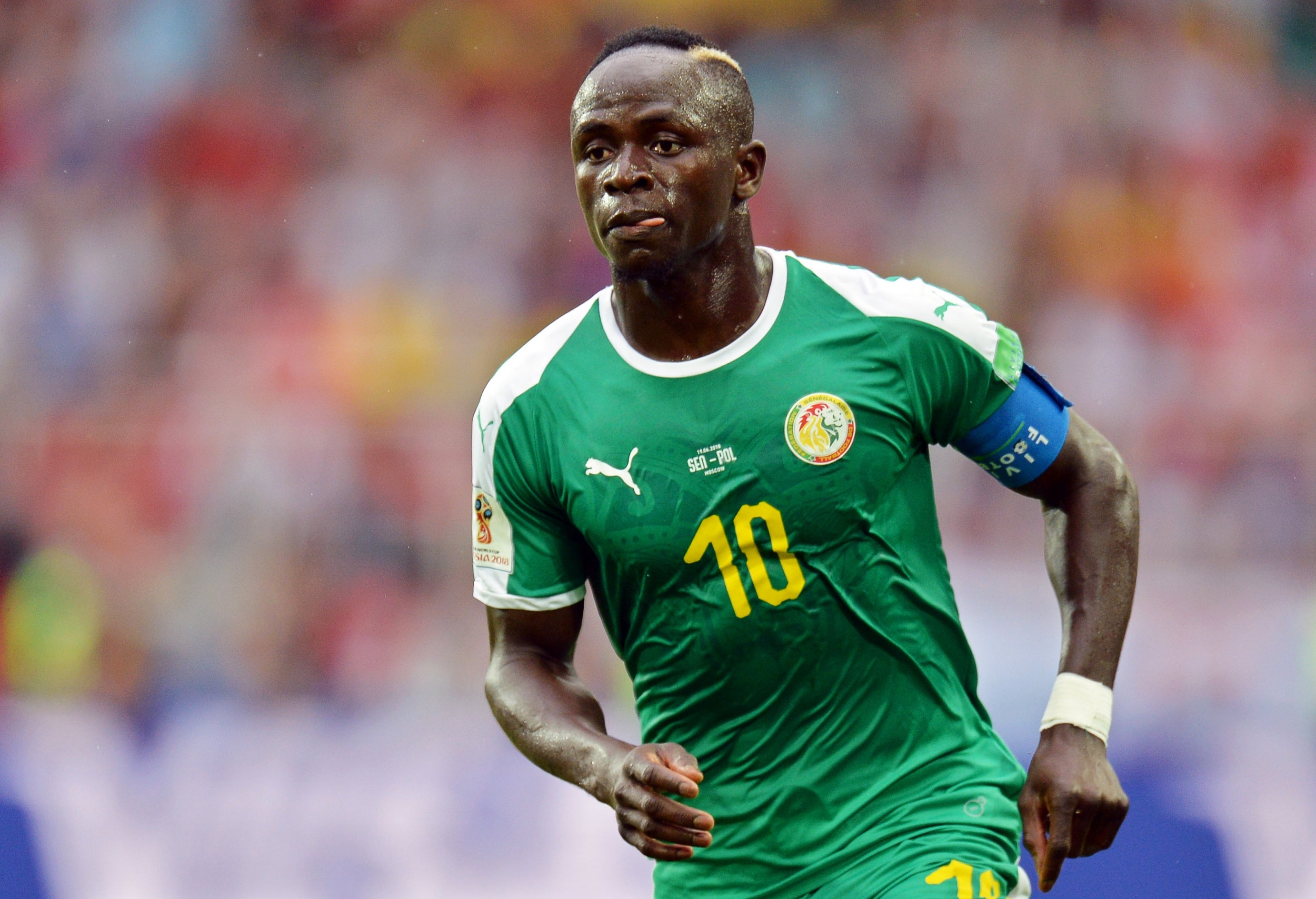How Mohamed Salah’s achievements remind the world it is class and not religion that divides us the most
On Tuesday night the door of the Abdullah Quilliam mosque in Liverpool was left open encouraging people of all faiths to contribute to foodbanks and stick around to watch the World Cup

Your support helps us to tell the story
From reproductive rights to climate change to Big Tech, The Independent is on the ground when the story is developing. Whether it's investigating the financials of Elon Musk's pro-Trump PAC or producing our latest documentary, 'The A Word', which shines a light on the American women fighting for reproductive rights, we know how important it is to parse out the facts from the messaging.
At such a critical moment in US history, we need reporters on the ground. Your donation allows us to keep sending journalists to speak to both sides of the story.
The Independent is trusted by Americans across the entire political spectrum. And unlike many other quality news outlets, we choose not to lock Americans out of our reporting and analysis with paywalls. We believe quality journalism should be available to everyone, paid for by those who can afford it.
Your support makes all the difference.On the same stretch of road in Liverpool there are two distinct venues. Head inland from the docks, wind towards West Derby and quickly you meet the old Grafton Ballrooms, a place where the clientele was famously mature and known for its ferocious determination in the pursuit of romantic liaison.
Liverpool supporters on a European away trip in Istanbul were once able to neatly illustrate the reputation, unfurling a banner inside Galatasaray’s notorious Ali Sami Yen stadium, which read: “If you think this is hell you should try the Grafton on a Friday night.”
With its doors chained and bolted long ago and its red exterior paint flaking, the next similarly sized building stands elegantly, though its presence and meaning is subtler. Only a small plaque gives indication of what lies behind the veneer of this Georgian townhouse, one of three in a grand terrace that a century ago was owned by the same businessman.
The Abdullah Quilliam Society restored Britain’s first mosque in 2014 from a tumbledown nightmare of damp ceilings, rotting walls, boarded up windows and buddleia infested or otherwise submerged floors. Quilliam had been a solicitor and Methodist preacher in the city until 1887 when, following a trip to Morocco, he opened the Liverpool Muslim Institute. He had been the first Christian in Victorian England to convert to Islam.
The issue of location is significant. Parts of Anfield, Everton, Fairfield, Kensington, Tuebrook and the city centre are in L6. Though it means the postcode includes more districts than any other area of Merseyside, the community is overwhelmingly white. Nearby Scotland Road has not been a centre for sectarian division for a long time but the Liverpool Irish Centre is only a few streets away, having relocated there in 1999. This week, its website was advertising a Father Ted quiz.
What really connects people here are the twin concerns of class and football. Under Conservative governance 11 of Liverpool’s neighbourhoods have fused as the most deprived one per-cent in the country, including Anfield where the ground of one of the city’s two historic football clubs sits just to the north. Developments to its main stand – particularly to someone who might be unfamiliar with the locality – might judge it to be out of place, especially if you look away from the Kop and down Varthen Street which now cuts off at a steel fence before sprawling out into a wasteland.
Under the ownership of Fenway Sports Group, there has been reasonable cohesion with residents, with Alroy Road and some of thoroughfares in the warren of terraced homes behind it emerging as examples of how the super-rich can affect surroundings positively. Yet the fact remains that on a matchday, foodbank collections are taken just yards away and many of the donations eventually reach impoverished families living close by.
The Fans Supporting Foodbanks campaign, which also has Everton supporters at its forefront, has a slogan that says, “Hunger Doesn’t Wear Club Colours,” but the initiative’s collective work is now pushing another agenda that is even more pertinent: neither does religion.
All of this helps explains why on Tuesday night the black wooden door of the Abdullah Quilliam mosque was left open, as it will be for the rest of the World Cup ahead of 7pm kick offs, encouraging persons of all religious faiths to contribute whatever food packages they can afford and stick around afterwards to watch the matches together.

The screening of Russia versus Egypt as a starting point was symbolic because of Mohamed Salah’s involvement, who is one of around 25,000 Muslims now living in Liverpool.
Earlier in the day, his Liverpool teammate Sadio Mané featured in Senegal’s impressive victory over Poland. Like Salah, Mané seems to be comfortable by the Mersey having been photographed several times doing his weekly shop in a supermarket wearing a traditional African tunic and sandals.
“I have seen him,” said a grinning Fahim Khalil, who attends the same mosque as the pair in the south end of the city but chose to watch the Russia-Egypt game at the Abdullah Quilliam because of his “spiritual duty to contribute time to other people.”

“There is no point in having a life where you only earn money and leave it behind at the end,” he told The Independent moments before Russia’s opening goal saw the hosts take control of the Group A fixture, much to the disappointment of the 50 or so congregation sitting before a specially installed big screen. There are hopes that publicity will result in a bigger attendance when England face Belgium next week but as one of the organisers says, the message is more important than the initial numbers.
“If we get one tin of beans tonight, it’s one more tin of beans than we had at the start of the day,” said Dave Kelly from the Blue Union, the pressure group associated with Everton. He thinks that football supporters can have a bigger influence over the way things are than many care to really appreciate. When a foodbank was installed outside Old Trafford on the day of a Manchester United-Liverpool fixture, Spirit of Shankly were the first organisation to make a donation.
“Lots of fans have put tribal differences to one side and recognise the social impact football can have but it needs more,” Kelly insists. “If Man United supporters and Scousers can campaign together over ticket prices as we did successfully, why can’t we campaign together successfully over poverty, tackling racism too?”
Sarah Morton is the equalities officer for the Walton Constituency Labour Party and like Kelly, she recognises that poverty has closer links to class than race, describing this event as one that helps dispel myths.
“I love Liverpool, it’s an amazing city; we have the oldest Chinese community in Europe and as a port there is a rich ethnic history. But to deny there are any issues with Islamophobia and other forms of racism would be inaccurate – just as it is in any other urban area,” she said. “There are people who are hoodwinked by social media and getting sucked into a type of propaganda that is dividing the working class rather than strengthening it.”
Salah would have 19 touches in the first half, fewer than any other player on the pitch in Saint Petersburg, nearly 2,000 miles away. Though he would later score from the penalty spot, his country will be eliminated from the World Cup unless Saudi Arabia, having been thrashed by Russia last week, can somehow beat Uruguay later on Wednesday. Amidst the disappointment there remained a profound hope, explained by Mumin Khan, who runs the mosque’s business operation.
“Mo Salah has helped lift a barrier of negative perceptions in a way so many institutions and leaders could not,” Khan reminded. “His achievements have spread confidence, that it’s possible people can all work together a bit more.”
Join our commenting forum
Join thought-provoking conversations, follow other Independent readers and see their replies
Comments